a Lazy Scatterbrained Comic About Undiagnosed Mental Illness
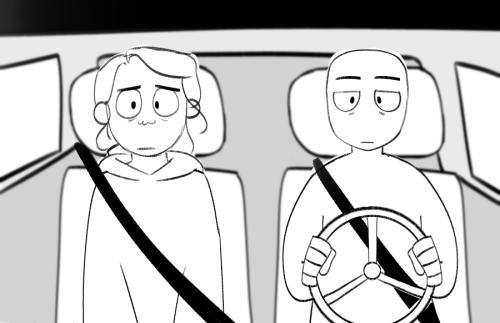
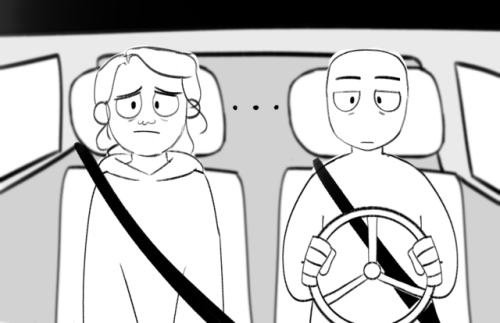
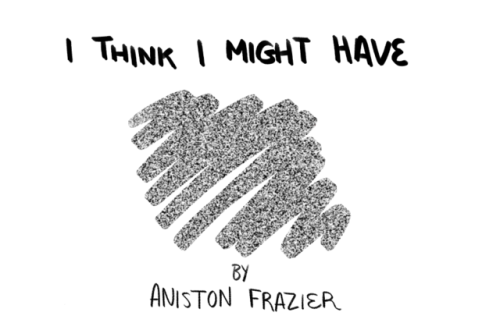
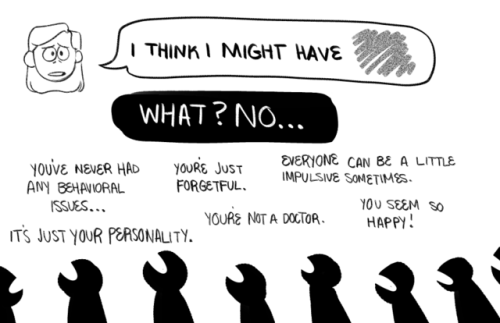
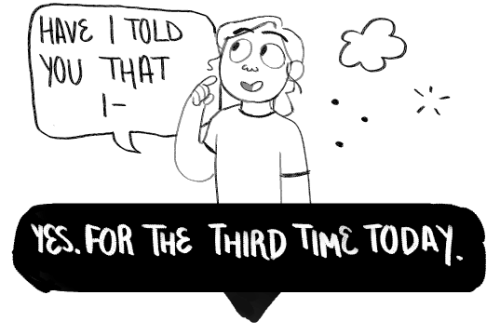
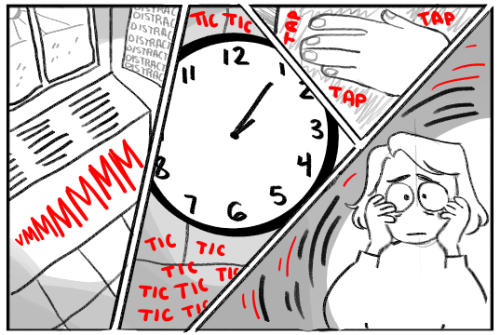
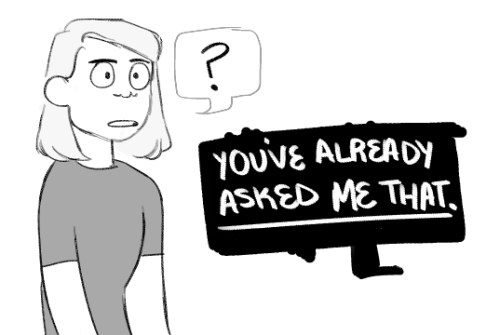
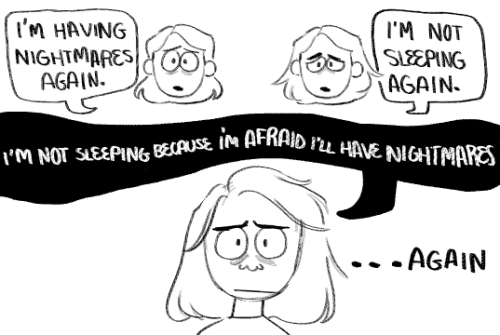
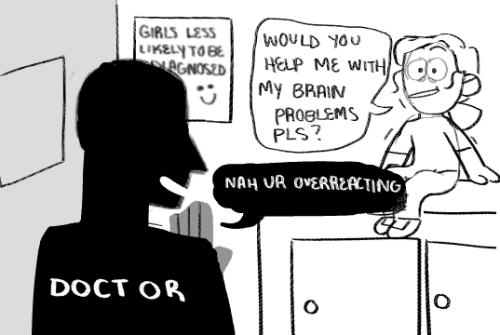
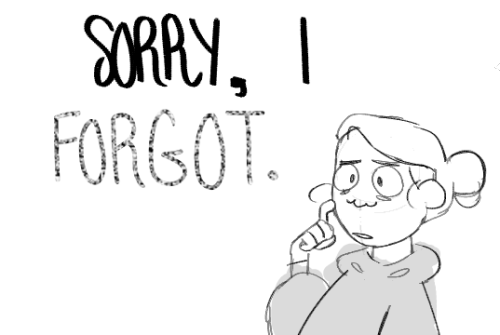
a lazy scatterbrained comic about undiagnosed mental illness
More Posts from Souppooppie and Others
Game-Changing Sites for Writers
A recent search for a specific type of site to help me build new characters led me down a rabbit hole. Normally, that would make me much less productive, but I have found a treasure trove of websites for writers.
Bring Characters/Places to Life
There are a few different places you can use to create a picture of something entirely new. I love this site for making character pictures as references, instead of stock photos or whatever pops up on Google Images.
thispersondoesnotexist: every time you reload the page, this site generates a headshot of someone who doesn't exist. This is great if you're thinking about a character's personality or age and don't have specifics for their facial features yet.
Night Cafe: this is an AI art generator that takes your text prompt and generates an image for it. I tried it for various scenery, like "forest" or "cottage." It takes a minute for your requested photo to load, but no more than maybe five for the program to finish the picture.
Art Breeder: this website has endless images of people, places, and general things. Users can blend photos to create something new and curious visitors can browse/download those images without creating an account. (But if you do want to make an account to create your own, it's free!)
Find Random Places on Earth
You might prefer to set a story in a real-life environment so you can reference that place's weather, seasons, small-town vibe, or whatever you like. If that's the case, try:
MapCrunch: the homepage generates a new location each day and gives the location/GPS info in the top left of the screen. To see more images from previous days, hit "Gallery" in the top left.
Atlas Obscura: hover over or tap the "Places" tab, then hit "Random Place." A new page will load with a randomly generated location on the planet, provide a Google Maps link, and tell you a little bit about the place.
Random World Cities: this site makes randomly selected lists of global cities. Six appear for each search, although you'll have to look them up to find more information about each place. You can also use the site to have it select countries, US cities or US states too.
Vary Your Wording
Thesauruses are great, but these websites have some pretty cool perspectives on finding just the right words for stories.
Describing Words: tell this website which word you want to stop repeating and it will give you tons of alternative words that mean the same thing. It typically has way more options than other sites I use.
Reverse Dictionary: type what you need a word for in Reverse Dictionary's search box and it will give you tons of words that closely match what you want. It also lists the words in order of relevancy, starting with a word that most accurately describes what you typed. (There's also an option to get definitions for search results!)
Tip of My Tongue: this website is phenomenal. It lets you search for that word you can't quite place by a letter in it, the definition, what it sounds like, or even its scrambled letters. A long list of potential options will appear on the right side of the screen for every search.
---
Hope this helps when you need a hand during your next writing session 💛
When I was younger and more abled, I was so fucking on board with the fantasy genre’s subversion of traditional femininity. We weren’t just fainting maidens locked up in towers; we could do anything men could do, be as strong or as physical or as violent. I got into western martial arts and learned to fight with a rapier, fell in love with the longsword.
But since I’ve gotten too disabled to fight anymore, I… find myself coming back to that maiden in a tower. It’s that funny thing, where subverting femininity is powerful for the people who have always been forced into it… but for the people who have always been excluded, the powerful thing can be embracing it.
As I’m disabled, as I say to groups of friends, “I can’t walk that far,” as I’m in too much pain to keep partying, I find myself worrying: I’m boring, too quiet, too stationary, irrelevant. The message sent to the disabled is: You’re out of the narrative, you’re secondary, you’re a burden.
The remarkable thing about the maiden in her tower is not her immobility; it’s common for disabled people to be abandoned, set adrift, waiting at bus stops or watching out the windows, forgotten in institutions or stranded in our houses. The remarkable thing is that she’s like a beacon, turning her tower into a lighthouse; people want to come to her, she’s important, she inspires through her appearance and words and craftwork. In medieval romances she gives gifts, write letters, sends messengers, and summons lovers; she plays chess, commissions ballads, composes music, commands knights. She is her household’s moral centre in a castle under siege. She is a castle unto herself, and the integrity of her body matters.
That can be so revolutionary to those of us stuck in our towers who fall prey to thinking: Nobody would want to visit; nobody would want to listen; nobody would want to stay.
Short Story Plot: How to Use Ideas and Structure to Plot a Short Story
Do you want to write a short story, but are unsure about how to develop a short story plot?
Short stories rarely require extensive plotting. They’re short, after all. But a bit of an outline, just to get the basic idea down, can help you craft a strong plot.
Plotting your short stories will give you an end story goal and will help you avoid getting stuck in the middle, or accidentally creating plot holes. You’ll have fewer unfinished stories if you learn to do a little planning before you start writing.
And in this article, you can learn how to take your short story’s primary conflict, and build a plot around it.
Definition of Plot and Structure
I see the terms “plot” and “structure” thrown around interchangeably quite a bit, so I’d like to correct that before we move on.
Plot is a series of events that make up your story.
Structure is the overall layout of your story.
Plot is (most likely) unique to your story, but there are a handful of basic structures that are universal and used over and over again. (We’ll get into the basic three act structure in a later post.) Structure is the bones and plot is what fills it out.
You can learn more about plot and structure in this article, or the different story types here.
The Strength of a Short Story Idea
When I first started out writing short stories, I had no idea where I was going with any of them. Absolutely none. I see this time and time again with newer writers. I think it’s because we’re conditioned to think any kind of art is only driven by that infamous and often elusive muse rather than hard work. I felt the same way.
And then I started getting more stories under my belt. Some I finished. Some I didn’t.
You know what the difference was? The stories I finished, I plotted before I wrote.
Now I know a lot of writers loathe plotting or outlining stories—of any length, but especially short stories. They have various reasons for this dislike, but the most common one I hear is planning or outlining takes all the “magic” out of writing. “Creative writing is about being creative!”
I won’t get into the idea that writing is actually a job here—it is. That’s not what this article is about.
Instead, I’m going to propose a different reason for planning a short story with one important question: Is your idea even a story?
Planning out your story, even if it’s short, can give you an answer to this question. It will determine whether or not your central character can work towards achieving a goal (and simultaneously the plot moves towards a climax), or if your idea ends there—at the idea.
Writer’s tip: If you’re feeling stuck on coming up with an idea that could withstand a story’s length, try looking at the types of plots discussed in this article.
Is It a Story or Just a Story Idea?
Don’t panic. I don’t plan extensively. But what I’ve found was absolutely no planning whatsoever more often than not leads to wasted time. Nobody has time to waste.
If I don’t plot at all, I’ll get maybe a third of the way through the story and get stuck. I’ll have no idea where it was going, and without that goal in mind, I’ll flounder. I might tinker around with the idea a little longer, but most of the time I’ll end up abandoning the story.
A few weeks ago, I had the infamous muse visit me. I grabbed my notebook and started writing. It was great writing. The prose was good, the main character was crazy interesting, ditto for the secondary character, and I’d set up a mystery that made you want to turn the page. The problem was I had no idea what the mystery was. I had set up and no payoff. This story idea fizzled out at the start of the second act.
Now, to be clear, I do indulge my muse every once in a while. It does feel good to be taken over by an idea, even if you don’t know where it’s going. It’s all very “artisty.”
But the fact is I’ve sold one story that I finished without plotting it beforehand. One. Out of dozens I’ve started. That one took me about a week to write and it was torture for me, for my characters, and, I’m sure, for the backspace on my keyboard. Everything about the story reads as forced. It’s uninspired. And you know what?
That’s the one my muse started me on! Inspiration is supposed to be the point of the muse, right? But a muse can only get you started; it can’t keep you going.
Your muse won’t finish a story for you.
When your muse starts poking at you and you don’t know if your idea is a story, ask yourself a couple of questions:
Am I going to remember this idea tomorrow? Yes, it’s nice to be taken over by inspiration. Feel free to indulge that every so often. But also be prepared to have an unfinished story on your hands. You don’t necessarily have to wait until tomorrow to write the thing (especially when we’re talking about shorts), but you do need to know if your enthusiasm is going to wan a few minutes down the road when your muse decides to go take a nap, leaving you with nothing but frustration. (That story I mentioned a moment ago? I haven’t completely forgotten about it, but it does not sit at the top of my mind.)
Do I have a “What if?” question and an answer to that question? If you’re thinking about beautiful sentences where nothing is happening, that’s probably not a story. If you can’t think of an end goal for your character, that’s probably not a story. See the next section for more on “What if?” and the answer. (The story I didn’t finish did not have a goal in mind.)
Do you have a character? This one seems like a no-brainer, but you’d be surprised how often I used to start “stories” and just ramble on with purple prose. No people, no action, no story.
If the answer to all these questions is “yes,” then you most likely have a finishable story. If it’s “no” tell your muse to go back to its hole until it can come up with something better.
If you must, explore the idea a little more and see if you can’t plot a little something. (Do not write yet!)
Enter the “What if?” question.
What If? How Asking This Question Can Plot a Short Story
In the last post, I told you my favorite way to think of a short story idea is the “What If?” question. This question can help you think about various ways to put your central character into a conflict, like: What if X happened? It’s your own mind giving itself creative writing prompts.
Let’s expand on that method a bit. Notice it’s a question. And questions often have answers, do they not? Knowing the answer to your “What If?” question is the most basic outline of a story.
Let’s start with a basic question.
Q: What if someone knocked on my door?
A: I’d probably ignore it.
That’s it. That’s the story. It’s kind of crappy, right?
Notice that answer is my immediate reaction to the knock. It’s not something that happens down the road. That’s part of what makes this scenario NOT a story.
The other issue here is there is no conflict. I don’t answer the door, the person goes away, and I’m left to my own devices. There are no consequences for my decisions, so nothing happens—and nobody reading about this incident cares.
Without conflict, there are no stakes in a story. No conflict equals no story.
What Makes a Good Conflict?
Remember conflict can come in many forms and doesn’t have to be a shoot ’em up kind of situation. Internal conflict can also make a short story. But there MUST be conflict.
So, on multiple levels, this question and answer session is a loser.
Now, let’s say I don’t answer the door. (I’m a millennial. I’d rather not talk to people if I can help it, so this really is the most likely thing to happen.) The person assumes I’m not home. But wait! They’re a burglar. They now try to break into my house. The “What If?’ question has now changed to “What if someone tried to break into my house while I was home?”
See how the central character has to do something now? Even if they don’t, there will be consequences.
Because the story idea establishes stakes, I know I’ve got something. How do I know? There are myriad possibilities here. I could call the cops. I could run out and confront them myself. I could freeze and run upstairs and hide. I could sic my dog on them. I could wait for them to get inside and invite them to join me in having a cup of tea.
Whatever I choose to do, there will be a cause and effect trajectory of events. Which means more stakes, and more opportunities that force my protagonist to face their conflict. They have to make decisions, which will lead to a whole slew of other “What If?” questions:
What if they get in before the cops get here?
What if they break a window?
What if my dog was outside and they hurt him?
What if a neighbor sees them and comes running over?
What if they “break in” but it’s really just my sister needing in my house for something?
What if I’m hiding under the bed and they find me?
What if they hate tea?
What if … and the list goes on.
These are all more interesting scenarios than just ignoring the door and the person going away. But we’re still looking for the answer to the initial “What If?” question. The answer solves the question and puts it to bed. It doesn’t lead to other questions.
Don’t Forget to Answer Your What If Questions
A short story only has one to three scenes normally, so your answer needs to come in a short span of time. It can’t come years down the road. Any span of time longer than a few hours, maybe a day or two, is probably too long.
Q: What if someone tried to break into my house while I was home?
A: I would call the cops, but also grab my bat and be ready to use it.
But wait. That still doesn’t answer the question, not in a final way. There’s still an open ending there, still questions. (Did I use the bat? What happened if I did?) Let’s try again.
A: I would decide not to use my bat and would talk to them until the police got there.
That’s better. With this scenario, I can think of a couple of things that would happen after the police got there, but at that point the situation is over. I’ve done it. I’ve defeated the burglar. Anything afterwards is a conclusion to the story.
The best part is, I’ve actually done it in a way that means change for me as a central character. I didn’t want to talk to anyone to begin with, which is what led to the whole situation. But I have to overcome that aversion by talking to someone in order to solve the problem.
Short Story Structure
We’ve got two important elements of the story narrowed down now: the “What If?” question and its ultimate answer.
If you’ve been following this blog for a while, you might have come across the many posts we have about plot structure. In a story you need six things:
Exposition (Background and setup.)
Inciting Incident (A major event happens to your character.)
Rising Action (or progressive complications, a sequence of events where things get worse.)
Crisis (Ah, what is your character going to do?)
Climax (Showdown based on what your character decided to do.)
Denouement (Finish it up.)
Need a refresher on these plot elements? Dive further into story structure here.
A short story is often only one to three scenes. That means this structure, these six elements, stretch over the entire story to form the framework. (The scenario I’ve presented would most likely be a one-scene story.) Notice I’m talking about framework here. These six elements are your story structure.
So what do we have here after all this thinking about questions and answers?
The “What If?” question is your Inciting Incident.
The ultimate answer is your Climax.
Boom. Two elements down. And these two elements happen to be the bulk of what your readers will remember from your story.
We’ve planned a story, believe it or not. And it didn’t even hurt that much.
But wait! There’s more. (Sorry, couldn’t help myself.)
In the process of coming up with these two elements, we’ve inadvertently come up with a couple of others.
Choosing not to use the bat and talking to the burglar instead? That’s the Crisis. All those streams of “What if?” questions? Those are progressive complications.
Whoops. We’ve outlined basically the whole thing, haven’t we? I sort of tricked you there. Sorry, not sorry.
Plotting Doesn’t Hurt—Too Much
Plotting a short story doesn’t have to be a meticulous thing that requires hours of work and a running spreadsheet. It also doesn’t have to take the magic out of writing.
Your plan for your short story can be a simple, loose outline. (By the way, outlines can change if you think of something better! They’re not set in stone.) Really, you just need two elements to get to writing a short story:
A “What If?” question (identifies the Inciting Incident)
The answer (shows the Climax)
And then you’re ready to write!
In future articles, we’ll dive more into writing structure and the essentials and plot elements of a short story. For now, use this “shortcut” to plan out a few short stories of your own! Have fun with it!
Source
Imagine being a person who experience the world differently and never being believed by anyone and now, that very person experienced shit called executive dysfunction like ah yes, by the grace of the universe this life of mine has blessed me with another enormous humongous jajargous fuck truck that I have to handle all on my own in this weak body which has torn and shreds into nothing but a pile of old dangly swiggly rotting skin
and I AM MORE ANGRY PISSY POOPY because I can TRULY UNDERSTAND that no one would believe me. because executive dysfunction sounds like a huge lie. Like if someone were to tell me that they can't do anything because their brain says ' no ' that it tells me to just ' wait ' .. I would grab the largest harpoon and stick it to their butthole like skewers so they can have a more believable reason that they can truly do no shit
whaAT IS THIS CURSE
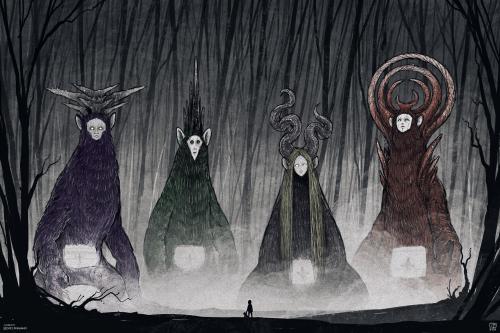
The Council of Elder Tubbies
A snippet of the new song “Alone in the Night" in which Sondre Lerche collaborated with AURORA, posted on Sondre’s instagram
I GOT HOWLLLLLLLLLLLLL AWOOOOOOOOOOOOO
hello i made this
https://uquiz.com/C1qELY
REBLOG WITH YOUR RESULTS I WANT TO KNOW!!!! AHH
Me, person with chronic pain : I am in pain. My body is heavy.
My mom : maybe you should try boxing?
LOOK- I CAN'T EVEN BE MAD AT THIS.

Writing romance between characters
A lot of readers like romance, don't they? From romance books to romantic subplots in a fantasy/sci-fi/thriller, we have some sort of romance in the books we read (though not all of them). A lot of times though, we feel the romance is forced and can be extremely unpleasant to watch. Let's discuss some tips about how to write romance properly.
Tension, tension, tension
Tension is key to any romance, whether it be enemies-to-lovers, friends-to-lovers, rivals-to-lovers etc. Some examples are longing gazes, hands brushing each other, wistful gazes, hugs that last a little too long and more! Without tension, the romance just feels will be flat and boring and the readers won't be engaged in it. Please note that for the tension part, the things I listed can be platonic as well! What I mean to say is their reactions, such as them realizing they've caught feelings and now acting differently with each other, wistful gazes at someone they know they can't romance etc. All these actions I've listed in the post can happen platonically, especially for queerplatonic friends etc.
2. Give intimacy
Intimacy is not inherently sexual. It can also be emotional, and when portrayed in books properly, it can be marvellous to watch. Intimacy means being vulnerable with another person, being able to show them baring out their souls to one another, showing that they trust one another. Because if two people can't be intimate or vulnerable with each other, then no, we can't expect them to be in a romantic relationship.
3. Make them great individually
If the characters themselves aren't compelling characters, then we can't expect them to be any better in a romance. If one (or both) of the characters is flat and boring and the very embodiment of meh, then they're also going to be very "meh" in their relationship. Make the character engaging and exciting to watch, whether they're a villain or a hero. To gain some tips on how to write characters properly, check out my post on character writing!
TIP!
I have read this somewhere and I feel it's a really good tip! Use the no-kiss rule. Imagine the couple/ship you're writing. Write them but make sure that they don't kiss. Objectively, can you tell they have feelings for each other? If no, then do better or scrap it. If characters need to kiss to tell that they're in love, then they're not in love. Period.
-
 tubertrapper liked this · 1 week ago
tubertrapper liked this · 1 week ago -
 nostalgicfoxxosystem liked this · 2 weeks ago
nostalgicfoxxosystem liked this · 2 weeks ago -
 mostexquisite-girldick reblogged this · 4 weeks ago
mostexquisite-girldick reblogged this · 4 weeks ago -
 roseblog-rog reblogged this · 4 weeks ago
roseblog-rog reblogged this · 4 weeks ago -
 roseblog-rog liked this · 4 weeks ago
roseblog-rog liked this · 4 weeks ago -
 ama-master-of-satans-twizzlers reblogged this · 4 weeks ago
ama-master-of-satans-twizzlers reblogged this · 4 weeks ago -
 ama-master-of-satans-twizzlers liked this · 4 weeks ago
ama-master-of-satans-twizzlers liked this · 4 weeks ago -
 faithfulmouse64 liked this · 4 weeks ago
faithfulmouse64 liked this · 4 weeks ago -
 bitchidkandidc reblogged this · 1 month ago
bitchidkandidc reblogged this · 1 month ago -
 eclipsevisionary reblogged this · 1 month ago
eclipsevisionary reblogged this · 1 month ago -
 eclipsevisionary reblogged this · 1 month ago
eclipsevisionary reblogged this · 1 month ago -
 camidrahasmt liked this · 1 month ago
camidrahasmt liked this · 1 month ago -
 ewoobutnooriginalcontent reblogged this · 1 month ago
ewoobutnooriginalcontent reblogged this · 1 month ago -
 ewoo liked this · 1 month ago
ewoo liked this · 1 month ago -
 p1nkmedusa liked this · 1 month ago
p1nkmedusa liked this · 1 month ago -
 beddhead-red liked this · 1 month ago
beddhead-red liked this · 1 month ago -
 thebigmeatbandit liked this · 2 months ago
thebigmeatbandit liked this · 2 months ago -
 uptheantares liked this · 2 months ago
uptheantares liked this · 2 months ago -
 a-grim-hell-of-a-ink676 liked this · 2 months ago
a-grim-hell-of-a-ink676 liked this · 2 months ago -
 m00nymonster liked this · 2 months ago
m00nymonster liked this · 2 months ago -
 distracteddaintydemon reblogged this · 2 months ago
distracteddaintydemon reblogged this · 2 months ago -
 distracteddaintydemon liked this · 2 months ago
distracteddaintydemon liked this · 2 months ago -
 itsbeardedcollectorwolfme reblogged this · 2 months ago
itsbeardedcollectorwolfme reblogged this · 2 months ago -
 itsbeardedcollectorwolfme liked this · 2 months ago
itsbeardedcollectorwolfme liked this · 2 months ago -
 ajduwvf liked this · 3 months ago
ajduwvf liked this · 3 months ago -
 herstarlight reblogged this · 3 months ago
herstarlight reblogged this · 3 months ago -
 laudanumposting liked this · 3 months ago
laudanumposting liked this · 3 months ago -
 65mystery liked this · 3 months ago
65mystery liked this · 3 months ago -
 looping-cervid reblogged this · 3 months ago
looping-cervid reblogged this · 3 months ago -
 coffito liked this · 3 months ago
coffito liked this · 3 months ago -
 winteriine reblogged this · 3 months ago
winteriine reblogged this · 3 months ago -
 adnormal liked this · 3 months ago
adnormal liked this · 3 months ago -
 kageki-kokoro liked this · 3 months ago
kageki-kokoro liked this · 3 months ago -
 rantsofabookworm reblogged this · 3 months ago
rantsofabookworm reblogged this · 3 months ago -
 jesuislaluneetlesetoiles liked this · 3 months ago
jesuislaluneetlesetoiles liked this · 3 months ago -
 kirikenn liked this · 3 months ago
kirikenn liked this · 3 months ago -
 herstarlight liked this · 3 months ago
herstarlight liked this · 3 months ago -
 mybrainistooloud reblogged this · 3 months ago
mybrainistooloud reblogged this · 3 months ago -
 mybrainistooloud liked this · 3 months ago
mybrainistooloud liked this · 3 months ago -
 lillies-for-the-living reblogged this · 3 months ago
lillies-for-the-living reblogged this · 3 months ago -
 lillies-for-the-living liked this · 3 months ago
lillies-for-the-living liked this · 3 months ago -
 iolithaes reblogged this · 3 months ago
iolithaes reblogged this · 3 months ago -
 the-latchkey-kid reblogged this · 3 months ago
the-latchkey-kid reblogged this · 3 months ago -
 strikers5401 reblogged this · 3 months ago
strikers5401 reblogged this · 3 months ago -
 strikers5401 liked this · 3 months ago
strikers5401 liked this · 3 months ago -
 you-want-an-m-and-m liked this · 3 months ago
you-want-an-m-and-m liked this · 3 months ago -
 treesecake reblogged this · 4 months ago
treesecake reblogged this · 4 months ago